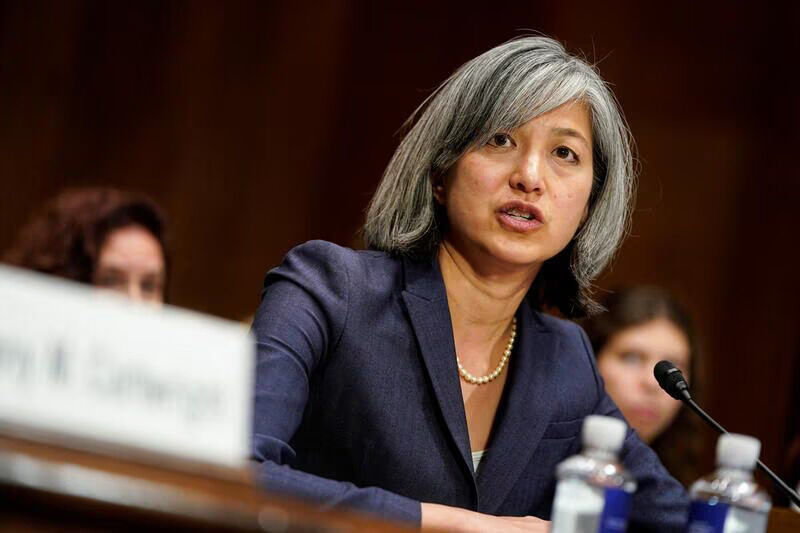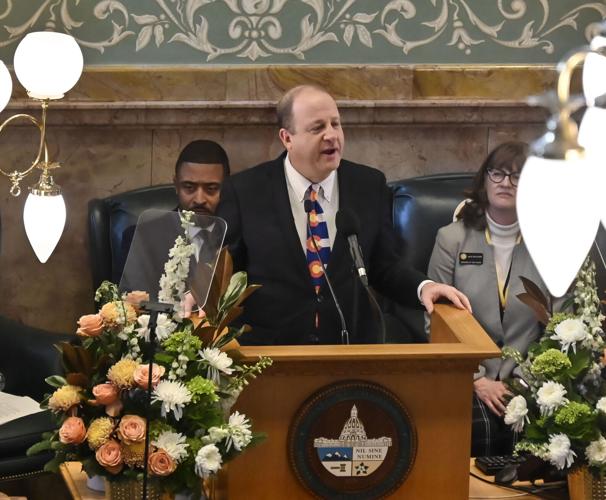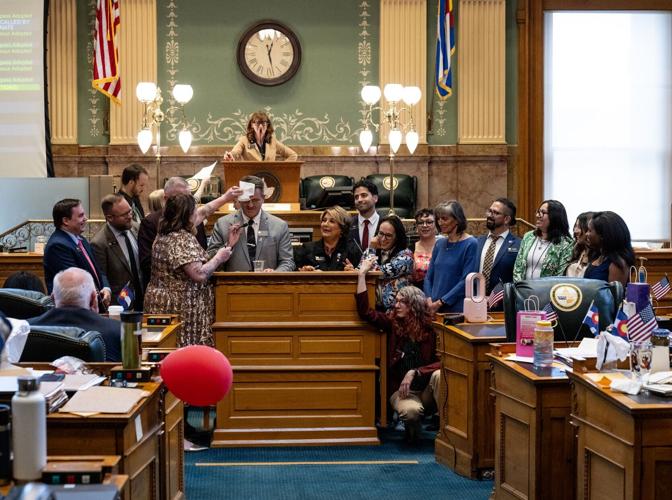Biden appoints historic firsts to Colorado courts, reviewing bills that died on the vine | WHAT YOU NEED TO KNOW

Today is May 30, 2023 and here is what you need to know:
One month before President-elect Joe Biden would take office, his incoming White House counsel, Dana Remus, sent a letter to Democratic senators outlining the new administration’s expectations for who the president would consider for high-level appointments in the justice system.
“With respect to each of these positions,” she wrote, “President-elect Biden is eager to nominate individuals who reflect the best of America, and who look like America.”
Over the next two years, with the guidance of Colorado’s two senators, Biden would place three new judges on the seven-member federal trial court based in Denver and one judge on the appeals court that covers Colorado and five neighboring states. Some of them fell into the specific categories requested in Remus’ letter – public defenders, civil rights attorneys.
“The joke is that a federal judge is somebody who knows a United States senator,” Frances Koncilja, who was involved in screening applicants for U.S. Sens. Michael Bennet and John Hickenlooper, said at a legal event last year. “We put together candidates, I think, who reflect the community.”
The judges appointed in Colorado between 2021 and 2022 were all “firsts” in various ways. On the U.S. District Court, Judge Regina M. Rodriguez was the first Asian-American appointee. Judge Charlotte N. Sweeney was the first openly gay member. And Judge Nina Y. Wang was the first magistrate judge to receive a lifetime appointment.
In addition, Judge Veronica S. Rossman became the only public defender to sit on the U.S. Court of Appeals for the 10th Circuit, which is headquartered in Denver.
Collectively, they represented another “first”: No president had ever appointed as many women in Colorado. Biden’s predecessors, Donald Trump and Barack Obama, appointed one and zero female judges, respectively.
Some bills end not with a bang but a whimper.
In Colorado’s 2023 legislative session, 32 bills died on the calendar. That means the bills failed not because lawmakers voted to reject them, but because they never got around to holding a vote in the first place.
Lawmakers often choose to kill bills in this way to save time that would have been spent on votes and debates when the measures do not have enough support – or, more commonly, do not have enough funding – to pass. Sometimes, though, lawmakers simply run out of time in the session to vote on the bills that were not prioritized on the calendar.
Of the 32 bills that died on the calendar this session, 21 were House bills and 11 were Senate bills.
More than 450 Colorado College students, many of whom were forced to deal with the COVID-19 pandemic just a few months after beginning college, celebrated their accomplishments during Sunday’s commencement ceremony at Ed Robson Arena.
But the event was marked by a group protest of this year’s commencement speaker, CC alumna Liz Cheney, just minutes after President L. Song Richardson had congratulated the class on its collective affinity for open-mindedness and critical thinking.
“The liberal arts education that you received here, both inside the classroom and outside, has taught you how to think,” Richardson said before introducing Cheney. “It’s taught you how to think critically, to welcome different perspectives, to see and understand different viewpoints, to challenge and debate each other and the ideas with which you may disagree.”
When Cheney was introduced – mostly to applause – about half the graduates turned their chairs 180 degrees and sat with their backs to the former Wyoming congresswoman for the entirety of her speech.
The House Armed Services Committee is launching an investigation into the delay around a decision on a permanent home for Space Command and changes to the requirements for a future headquarters.
The permanent home of Space Command, currently in Colorado Springs, has been a contested issue for two years since President Donald Trump announced it would move from Colorado Springs to Huntsville, Alabama in January 2021. Since then Colorado lawmakers have advocated for retaining Space Command in Colorado Springs, where many other Space Force guardians work and would remain if Space Command moved.
In a letter sent Thursday, House Armed Services Committee Chairman Rep. Mike Rogers, R-Alabama, said he was alarmed that fundamental changes had occurred to Space Commands mission and headquarters requirements, according to Air Force Secretary Frank Kendall. The secretary told Rogers and other members of the Alabama delegation about these changes in a recent meeting and stated he would launch his own investigation as well, according to the letter.
The Department of Defense proposed a new headquarters facility for Space Command that could house approximately 1,800, including contractors in 464,000 square feet of office space, according to the Environmental Assessment. Currently, Space Command is housed in existing office space at Peterson Space Force Base. In those offices, 1,200 people from all services, protect an area 100 kilometers above the Earth to the edges of the universe, Space Command Gen. James Dickinson said previously.
The requirements for a new headquarters have changed with the Department of Defense, the letter stated.
Gov. Jared Polis’ plan to offer relief to property taxpayers effectively guts refunds from the Taxpayer’s Bill of Rights by compounding the amount the state is allowed keep and spend each year, exponentially shrinking the money that Coloradans get and potentially eliminating it altogether at some point, according to critics of the proposal.
Critics charged that Senate Bill 303 is the Democrats’ “backdoor” attempt to siphon off TABOR refunds away from people’s pockets and funnel them into the majority party’s spending priorities – without expressly telling the public precisely because the checks are politically popular among Coloradans.
Such rhetoric of vanishing TABOR refunds, supporters of the plan countered, is “off the hook.”
Voters will have the opportunity to reject or approve the proposal in November. Already, battle lines are forming and both sides have begun to pitch narratives that will likely play out during the campaign.
Critics recently formed a coalition to fight the proposal, promising an “aggressive effort” that includes paid advertisements. Supporters are also expected to form a “yes” campaign.













